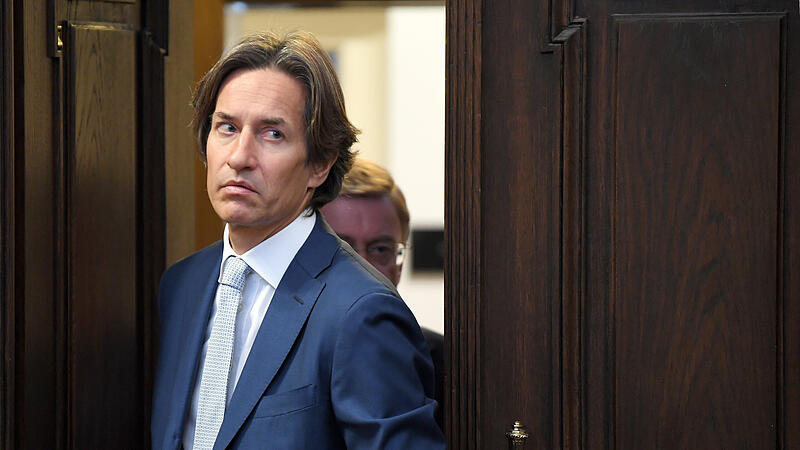Judge Marion Hohenecker needed two and a half hours on December 4, 2020 in the Vienna Criminal Court to present the verdict in the Buwog trial against ex-Finance Minister Karl-Heinz Grasser and 13 other defendants. 420 days later, since yesterday, Friday, there has been a written – and not final – verdict in the proceedings.
It comprises 1280 pages and was long awaited by the accused, their defense attorneys and those who observed the trial. The OÖN has the PDF version.
As reported, there were eight convictions and six acquittals in the Buwog trial in the first instance. Hohenecker saw corruption in the sale of federal apartments and bribe payments in 2004 as proven.
Grasser served eight years in prison, his best man Walter Meischberger seven and ex-lobbyist Peter Hochegger six. The former director of the Raiffeisenlandesbank Oberösterreich, Georg Starzer, was sentenced to three years in prison, ex-Immofinanz boss Karl Petrikovics and the lawyer Georg Toifl to two years. The Swiss asset manager Norbert Wicki was sentenced to 20 months in prison, while the former Telekom board member Rudolf Fischer was sentenced to one year. There were acquittals for the five defendants in the complex around the Linz Terminal Tower and ex-Immofinanz manager Christian Thornton.


The accused broker Ernst Karl Plech was found unfit to stand trial for health reasons in the course of the proceedings, ex-RLB-OÖ general director Ludwig Scharinger, also accused, died in January 2019. The presumption of innocence applies to all those named.
“Friends and Colleagues”
In the extensive written judgement, the assessment of evidence alone covers 900 of the 1280 pages. 45 pages are allotted to the list of guilty verdicts and acquittals. Judge Hohenecker stated: “In 2000, Grasser, Meischberger, Hochegger and Plech agreed to make private profit from the fact that the FPÖ was part of the government, but in particular from Grasser’s ministerial activities.” It is said that the quartet not only had a “friendly relationship, but also a professional collaboration”.
Grasser is guilty of knowingly abusing his powers over someone else’s property. As a result, he caused financial damage to the republic of 9.6 million euros and, in the indictment, Terminal Tower Linz in the amount of 200,000 euros. Meischberger offered Grasser “mental support” and tried to “establish a disguising contract for the discrete processing of commission payments,” according to Hohenecker.
The fact that ex-lobbyist Hochegger made a partial confession at the beginning of the trial was not a mitigating factor. “The Senate based its findings on the above-mentioned unobjectionable documents and quoted witness statements, but not on tactical statements that were adapted to the respective evidence.”
Criticism by Grasser’s lawyer
Response to the written version was mixed among defense counsel, who had already appealed the oral verdict. Grasser lawyer Manfred Ainedter announced that he would apply for an extension of the deadline. He criticized the “strange game of hide-and-seek with the delivery”, which “fits in with the procedure”.
Starzer’s lawyer Oliver Plöckinger also assumes that the deadline will be extended. A nullity complaint must normally be filed within four weeks of the delivery of the written judgement. In the case of extreme proceedings, the court has to extend this period upon request, it is said. It is fair to give both the lawyers and the judge “enough time,” says Plöckinger.
If the lawyers intervened, it would be up to the Supreme Court. If this overturns the verdict, it’s back to the start – to the first instance. (Rome)
Source: Nachrichten




